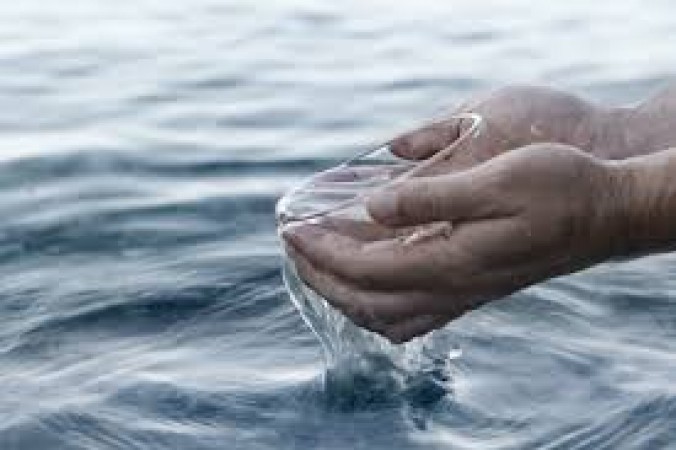
When you're stranded at sea or spending a long day on the beach, the vast expanse of water can be incredibly tempting. But can you drink sea water when you feel thirsty? Let's dive into this question.
Sea water contains a high concentration of salt, about 3.5% by weight. While this might not sound like much, it's significantly higher than what our bodies can handle.
Thirst is our body's way of telling us it needs more water to function properly. Our bodies are made up of about 60% water, and maintaining this balance is crucial for our health.
Salt is essential for our bodies, but in the right amounts. It helps regulate fluid balance, nerve function, and muscle contractions. However, too much salt can be harmful.
Drinking sea water actually dehydrates you. The high salt content means that your kidneys have to work extra hard to remove the excess salt, using up more water in the process. This can lead to severe dehydration.
When you consume too much salt, your blood sodium levels can spike, leading to a condition called hypernatremia. Symptoms include dizziness, vomiting, and, in severe cases, seizures, coma, or even death.
Osmosis is the process where water moves across cell membranes to balance salt concentrations. When you drink sea water, the salt draws water out of your cells, leading to cellular dehydration.
Our kidneys can only produce urine that is less salty than sea water. To expel the excess salt, our kidneys need more water than is available in sea water, leading to net water loss.
Historically, sailors who drank sea water often became severely ill. The ancient Greek sailors referred to the phenomenon of becoming mad from thirst as "hitting the dry sea."
Modern-day survival experts and stranded individuals have also faced dire consequences when drinking sea water. These stories highlight the critical importance of avoiding sea water consumption in survival situations.
Desalination is the process of removing salt from sea water to make it drinkable. This can be done through methods like distillation or reverse osmosis, which are not typically feasible in survival situations without proper equipment.
A solar still is a device that uses solar energy to evaporate water, leaving the salt behind. This method can produce small amounts of drinkable water from sea water, but it requires time and materials.
Rainwater is naturally fresh and safe to drink. Collecting rainwater using any available containers can be a life-saving strategy in a pinch.
If you know you'll be in a situation where fresh water might be scarce, hydrate well beforehand. This helps your body cope better with potential dehydration.
Always carry an adequate supply of fresh water when heading into remote areas or going on a boat trip. It's better to have more than you think you'll need.
These tablets can purify fresh water from natural sources, making it safe to drink. They are lightweight and easy to carry.
Some believe that drinking small amounts of sea water won't harm you. However, even small amounts can increase your salt intake significantly, leading to dehydration.
Contrary to some survival myths, drinking urine is not a safe alternative. It contains waste products and can exacerbate dehydration.
In tropical regions, coconut water can be a good hydration source. It contains natural electrolytes and is much safer than sea water.
Look out for dry mouth, thirst, and dark yellow urine. These are early signs that your body needs more water.
Severe dehydration includes dizziness, rapid heartbeat, confusion, and fainting. If you experience these, seek fresh water immediately.
If you or someone else shows signs of severe dehydration, it’s crucial to seek medical help as soon as possible.
In short, drinking sea water when thirsty is not safe. The high salt content leads to more harm than good, exacerbating dehydration and potentially causing serious health issues.
Always prioritize finding fresh water sources and carrying enough water with you. Knowing the dangers of drinking sea water can help you make better decisions in survival situations.
Company is bringing electric version of Maruti Wagon R, problems of these cars will increase!
What is the difference between hatchback and sedan car? How to identify vehicles
This powerful car entered the market with black styling pack, what is the price of this new edition?